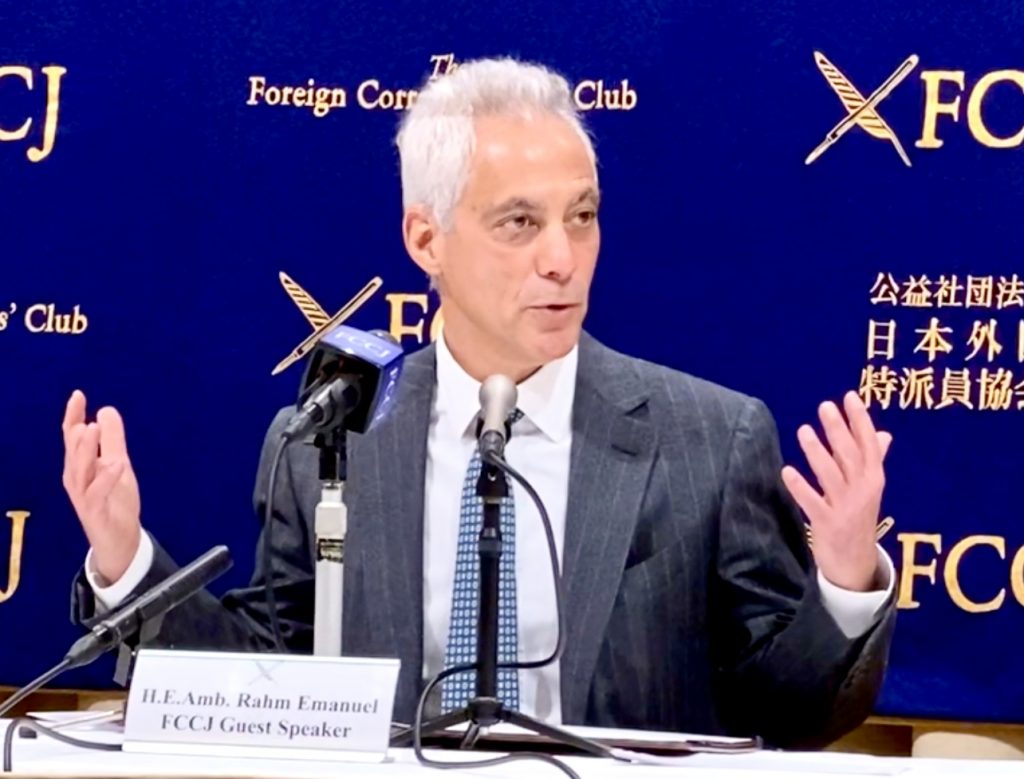
- ARAB NEWS
- 06 Jul 2025

TOKYO: U.S. Ambassador to Japan Rahm Emanuel has emphasized the need to combat “economic coercive acts by adversaries” in conjunction with partners such as Japan, Australia, the EU and other G7 nations.
“Malign actors have strengthened demand among countries of the Indo-Pacific region and beyond for a robust U.S. economic presence by intimidating neighbors and threatening trading partners,” Rahm said in an explicit broadside at China. “Economic coercion is using economic means to achieve specific political ends.”
In his statement on Monday, Rahm said the U.S. could bolster international relationships and deter future coercion by offering support to countries under attack or in need.
“The United States has an interest in countering such economic coercion by offering collective pushback through extension of support to targeted countries,” Rahm said. “A swift short-term response by government could ameliorate economic stress while the private sector adjusts to finding new export markets or attracting new investors. Failure to act leaves countries, particularly those with small economies and fragile political systems, vulnerable to increased economic coercion.”
“The coercive dimension of PRC economic statecraft has taken different forms and targeted various countries – in the Indo-Pacific and including a large number of European countries – forever a decade, and Russia has shown during its war against Ukraine that it is following a similar playbook when it deployed its energy resources against Europe.
America’s leadership in Europe’s time of need helped it prevail against Russia. These lessons learned can be applied against China.”
“All cases of economic coercion share the feature of imposition of economic hardship on countries for a political purpose, particularly changing those countries’ current behavior and deterring other trading partners from making similar choices in the future.”
Rahm said that while a number of high-profile acts by China had been reported, “countless other coercive acts are likely happening without public awareness.”
The Ambassador cited instances of coercion against Japan, the Philippines, South Korea and Australia, but added that smaller countries find it harder to combat economic coercion.
“The smaller economies in the Indo-Pacific region are particularly vulnerable to the PRC’s economic coercion. They are most dependent on trade with China – since China is already the largest and fastest growing trade partner – and they lack the economic flexibility and strength to wait four years for a WTO case to resolve the issue.”
In conclusion, Rahm stated: “We need a policy response to engage and win this battle. Examining the cases of countries successfully resisting economic coercion, such as Japan and Australia, reveals important patterns. Collective groupings, like the G7 or existing trade agreements, help countries resist China and survive the economic consequences.
It is only too clear how reliance on one single partner to source or sell goods can wreak havoc should that partner’s own economic or political objective change or turn against one.”
“By working with our coalition partners to quickly support victims, we can demonstrate the value of a rules-based order. It is clear that an effective response to the PRC’s coercion must be collective and must be led by the United States.”